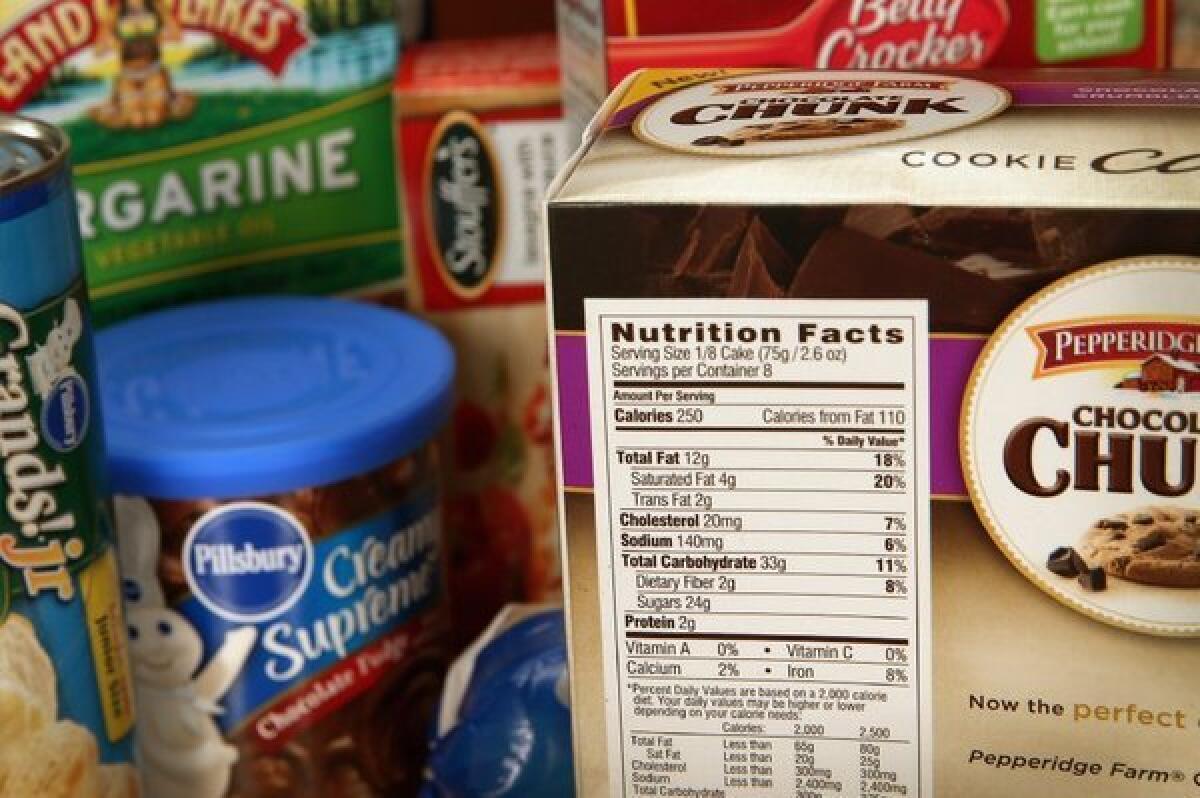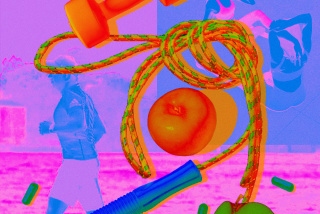We don’t need trans fats -- or even nastier stuff in our food

Of all the restrictions on food the Food and Drug Administration could propose, a rule that would, in effect, eliminate artificial trans fats is probably one of the easiest regulations to accomplish these days.
The partially hydrogenated oils, which once were ubiquitous in cookies, crackers, peanut butter and a host of other foods, already are pretty much reviled by consumers. In 2006, after the FDA required manufacturers to list the amounts of trans fats in the labels for their processed food, just knowing how consumers would react to seeing the ingredient was enough to send the food industry scurrying. In no time, it found ways to strip or drastically reduce the amount of trans fats from many products.
Though there are still a few products out there with very significant levels of artificial trans fats (a certain amount occurs naturally in foods), chances are that most of the big food companies already have been figuring out ways to eliminate the rest of it. That’s important because even very small amounts of partially hydrogenated fat have been shown to clog arteries and raise levels of harmful cholesterol while lowering levels of good, or heart-protective, cholesterol.
Photos: Are you eating trans fats?
And even many foods labeled “zero trans fat” are still delivering a dose. That’s because if they have less than half a gram per serving, they’re allowed to round down to zero. But what if the consumer has several servings, or a little bit of various products that contain the small amount? A few grams a day is significant.
The FDA wouldn’t actually ban artificial trans fats. Rather, it would no longer list it as an additive that is recognized as generally safe, which would require food companies to make a case for its safety when they want to include it in food. Given the stark research on trans fats, which have been found to do nothing good for our health, that would be a tough one to argue and chances are no food company would try.
Of course, there are probably things in our foods that are worse for us. Antibiotic-resistant bacteria, for example, which the FDA and Department of Agriculture should be more active about stopping.
We’ll all do fine without trans fats, even if it takes the microwave popcorn industry a little while to figure this out. But what else is in our food that perhaps we should worry about more?
ALSO:
So long, Blockbuster, and thanks for the memories
Discovery of Earth-like planets should be a Sputnik moment
Anti-vaccination movement: It’s time for doctors to take a stand
More to Read
Start your day right
Sign up for Essential California for news, features and recommendations from the L.A. Times and beyond in your inbox six days a week.
You may occasionally receive promotional content from the Los Angeles Times.







